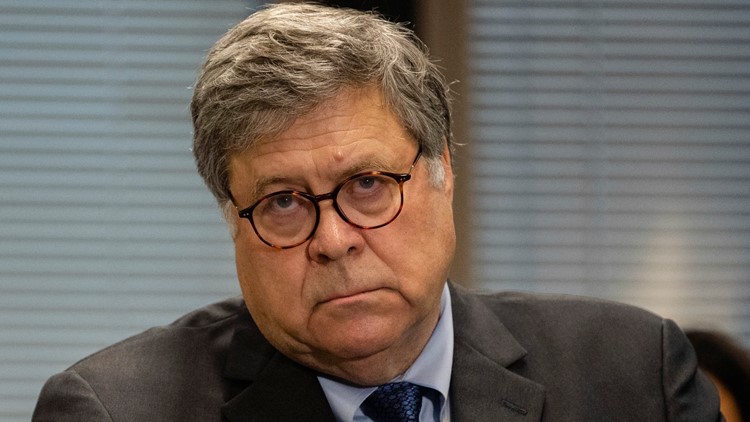AUGUSTA, Maine — Maine Attorney General Aaron Frey joined 23 AGs from across the country on Friday in voicing their "strong objection" to U.S. Attorney General William Barr's "abrupt" policy change that authorized federal prosecutors to pursue allegations of voting irregularities, if they exist.
The AGs say the reversal of a policy that has been in place for 40 years at the U.S. Department of Justice “will erode the public’s confidence in the election,” and called on him to “reverse your decision promptly.”
The policy change comes in the days following Trump's defeat in the 2020 presidential election to Joe Biden, who has surpassed the required threshold of 270 electoral votes needed to win the presidency. Trump has not conceded the election and is instead claiming without evidence that there has been a widespread, multi-state conspiracy by Democrats to skew the vote tally in Biden’s favor.
In a memo to U.S. attorneys, obtained by The Associated Press, Barr wrote that investigations “may be conducted if there are clear and apparently-credible allegations of irregularities that, if true, could potentially impact the outcome of a federal election in an individual State.”
He said any allegations that would “clearly not impact the outcome of a federal election” should be delayed until after those elections are certified and prosecutors should likely open so-called preliminary inquiries, which would allow investigators and prosecutors to see if there is evidence that would allow them to take further investigative measures.
"The 2020 election is over, and the people of the United States have decisively chosen a new President," the AGs wrote in the letter to Barr.
Generally, Justice Department policy is “not to conduct overt investigations, including interviews with individual voters, until after the outcome of the election allegedly affected by the fraud is certified.”
But Barr argues in the memo that concerns such acts could inadvertently impact an election are minimized once voting has concluded and that, in some cases, investigations could not be delayed until the election is certified.
Until now, the Department of Justice has recognized that the principal responsibility for overseeing elections lies with states and has “taken care to avoid affecting the outcome of elections or even the perception of political intrusion in the electoral process,” Frey and the coalition wrote.
“Attorney General Barr’s decision to unilaterally change longstanding Department of Justice policy to advance political objectives is inappropriate and must be reversed,” Frey said in a release. “Americans have voted and their votes are being counted. Election officials in Maine and across the country, regardless of political affiliation, have all stated clearly that voter fraud was not an issue which impacted this election, and the systems we already have in place ensure legitimate, fair outcomes. The people of Maine and our country have spoken, and I call on Attorney General Barr to immediately stop using his office to interfere with the democratic process.”
Joining Frey in signing the letter are Maryland Attorney General Brian Frosh and Minnesota Attorney General Keith Ellison, who co-led the letter, and the attorneys general of California, Colorado, Connecticut, Delaware, the District of Columbia, Hawaii, Illinois, Iowa, Massachusetts, Michigan, Nevada, New Jersey, New Mexico, New York, Oregon, Rhode Island, Vermont, Virginia, Washington, and Wisconsin.
"The people of the United States have spoken. The U.S. Department of Justice should not interfere with their choice, nor should it undermine confidence in the electoral process," they wrote. "We ask that you respect the will of the people and reverse your decision promptly."
States have until Dec. 8 to resolve election disputes, including recounts and court contests over the results. Members of the Electoral College meet Dec. 14 to finalize the outcome.



